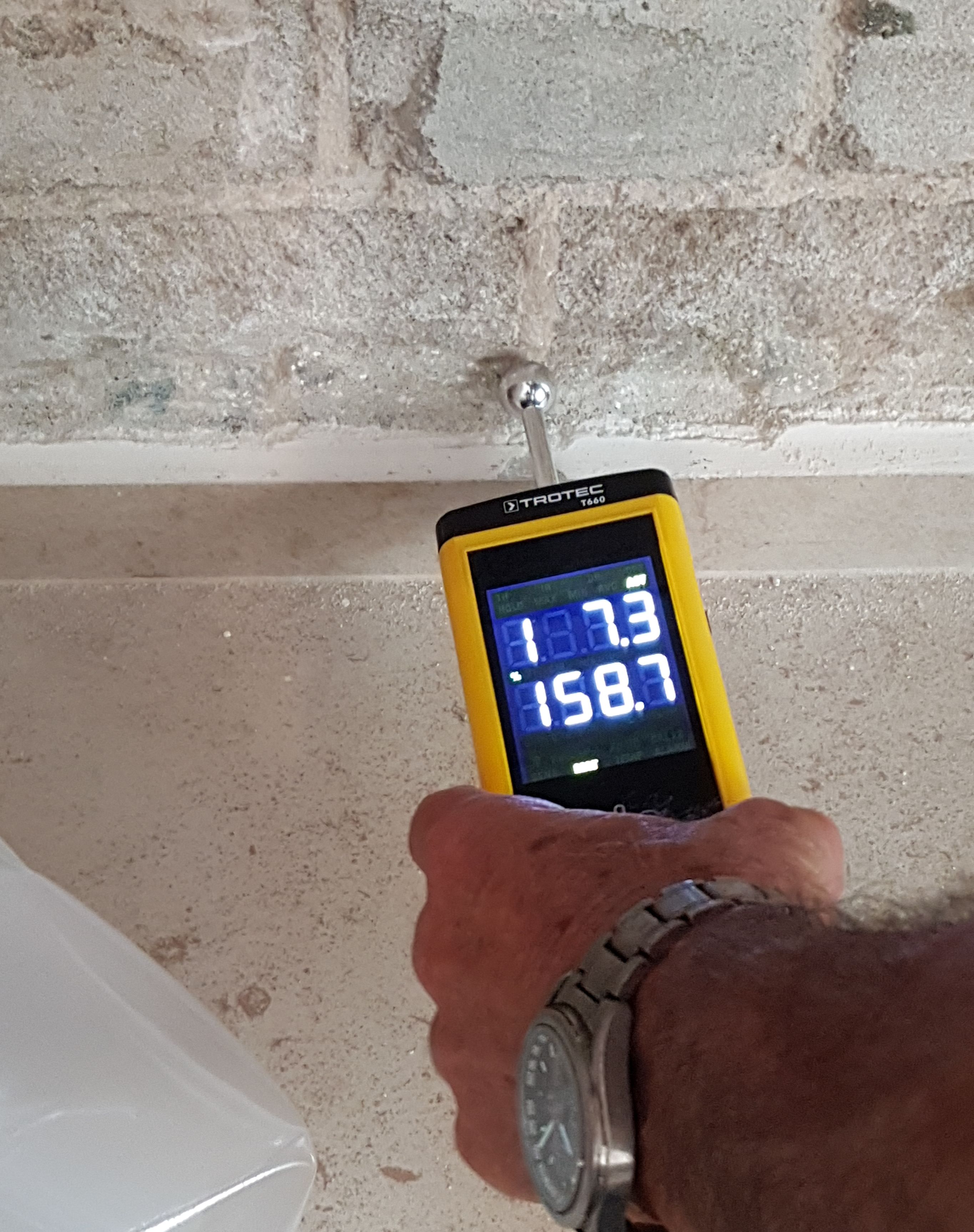Why Every House Owner Demands a Moisture Meter: Trick Benefits and Attributes
Why Every House Owner Demands a Moisture Meter: Trick Benefits and Attributes
Blog Article
The Ultimate Overview to Dampness Meters: A Comprehensive Overview and Exactly How They Can Save You Cash
Wetness meters offer as vital tools in detecting and monitoring moisture web content in materials, helping in protecting against costly problems and ensuring the high quality of items. Understanding the nuances of various types of wetness meters, their applications, and the possible cost-saving benefits they provide can be a game-changer for companies and professionals alike.
Types of Wetness Meters
One typical type is the pin-type wetness meter, which determines the electric resistance between two pins placed into a material. Pinless moisture meters, on the other hand, use electromagnetic sensing unit plates to check a bigger location without triggering damage to the material's surface.

Infrared dampness meters determine the thermal residential or commercial properties of a product to identify its moisture web content non-invasively, making them valuable for applications where pin or pinless meters might not be appropriate. Comprehending the different types of moisture meters available can assist industries pick the most ideal tool for their details moisture measurement demands.

Benefits of Using Dampness Meters
Wetness meters provide very useful advantages in accurately keeping an eye on and examining wetness degrees in diverse materials and atmospheres. One of the key advantages of making use of wetness meters is the prevention of prospective damage caused by excess dampness.
Furthermore, using dampness meters can bring about raised power effectiveness. By identifying locations with high dampness degrees, such as leaks or bad insulation, adjustments can be made to improve power conservation and reduce utility costs. In farming setups, wetness meters play a critical duty in enhancing crop returns by making it possible for farmers to check dirt wetness levels and make informed watering choices. In general, the benefits of using dampness meters cover throughout different markets, giving affordable services and promoting far better high quality control practices.
How to Select the Right Moisture Meter
Choosing the ideal moisture meter includes taking into consideration essential variables such as material compatibility, dimension array, and calibration accuracy. When picking a moisture meter, it's important to guarantee that the meter is ideal for the particular product you will certainly be testing. Various materials have differing electric properties that can influence moisture readings, so picking a meter created for your product is essential for precise outcomes. Additionally, think about the dimension series of the wetness meter. Make certain that the meter can detect wetness degrees within the range required for your applications. Calibration accuracy is an additional critical element to maintain in mind. Go with a wetness meter with trusted calibration to make sure accurate and constant analyses. Some meters might need regular calibration changes, so recognizing the index calibration procedure is important. By thoroughly examining these aspects, you can pick a moisture meter that meets your needs and offers precise wetness dimensions for your jobs.
Correct Methods for Dampness Meter Usage

Cost Savings With Wetness Meter Applications
Just how can the calculated application of wetness meters lead to significant cost savings across numerous markets? In the farming market, moisture meters help in establishing the ideal time for harvesting crops, protecting against excess or over-drying moisture that can affect the final item's high quality.
Likewise, in building and construction, dampness meters aid stop costly problems by spotting dampness degrees in building materials, such as timber or concrete, which can cause structural issues otherwise dealt with quickly. By identifying trouble locations early on, service providers can take restorative actions to avoid considerable repair work or substitutes, ultimately conserving money and time.
In addition, in the food handling industry, wetness meters are essential for checking product top quality and guaranteeing conformity with safety guidelines. By accurately measuring dampness content in food products, suppliers can avoid perishing, preserve quality, and lower waste, leading to substantial price savings. Generally, the critical application Recommended Site of moisture meters is a useful financial investment that can lead to considerable expense decreases and boosted efficiency throughout various markets.
Verdict
To conclude, wetness meters are important tools for determining and spotting wetness levels in various materials. By utilizing the best moisture meter and following correct strategies, customers can properly protect against expensive damages brought on by excess moisture. Spending in a quality dampness meter can bring about substantial price financial savings in the lengthy run by determining prospective problems early and allowing timely remediation. Ultimately, moisture meters are essential instruments for maintaining the honesty and long check this life of frameworks and products.
Wetness meters offer as indispensable devices in detecting and monitoring moisture web content in products, helping in protecting against costly damages and making sure the top quality of products. Infrared moisture meters determine the thermal properties of a material to determine its dampness web content non-invasively, making them helpful for applications where pin or pinless meters may not be suitable.Moisture meters use vital benefits in accurately keeping an eye on and analyzing moisture levels in varied materials and atmospheres. In farming settings, wetness meters play a crucial role in enhancing plant returns by making it possible for farmers to keep track of soil wetness degrees and make informed irrigation decisions.In final thought, wetness meters are beneficial devices for determining and identifying moisture levels in different products.
Report this page